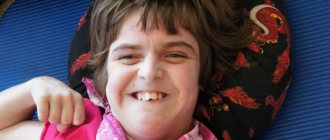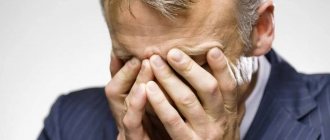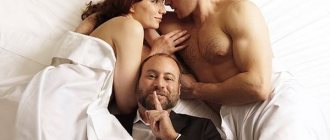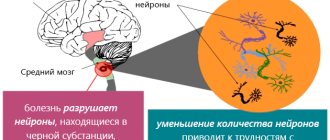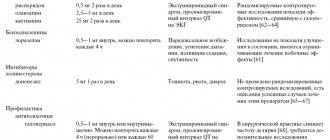Main stages of sleep
There are two stages of sleep: non-rapid eye movement (NREM) sleep and rapid eye movement (REM) sleep. In addition, when you rest at night, you experience different stages of the sleep cycle. When the brain first enters sleep, the mind goes through three stages of NREM sleep and then one stage of REM sleep.
Once this cycle ends, the process repeats until you wake up. This is what happens to you when you fall asleep.
First stage
The sleep cycle begins with the first stage, when the body just begins to relax. People often experience slow, rolling eye movements, sudden jerking or muscle spasms, or a falling sensation. At this stage you can easily wake up.
Second phase
At this stage, your slow eye movements will stop, your heart rate will slow down, and your body temperature will begin to drop. Your muscles will also begin to contract and relax as you fall deeper into sleep.
Third stage
The third stage is the moment when deep sleep occurs. During this stage, the brain waves slow down and become delta waves, making it much more difficult to wake up.
This stage is so important because, as we mentioned at the beginning, it is the recovery stage of sleep. It is during this time that the body renews tissue, strengthens its immune system, and builds bones and muscles.
Fourth stage
The last stage of sleep is REM sleep, the deepest stage of sleep. During this time, the brain becomes more active, helping you form memories and have vivid dreams. During this stage, your breathing, heart rate and eye movements speed up, and your blood pressure rises.
Light sleep: reasons
The reasons for shallow sleep are quite numerous. To better understand the problem and ways to solve it, let’s divide all the causes of sensitive sleep into two groups: normal (physiological) and not normal (pathological).
“Normal” light sleepers are:
- Young mothers . The physiological processes occurring in the female body after childbirth, a constant state of alertness (has something happened to the child?), as well as the habit of waking up frequently at night, make the sleep of young mothers quite sensitive and easily disturbed.
- Women in some phases of the menstrual cycle, pregnant . We combined these two groups into one, because the causes of light sleep in both cases are hormonal fluctuations, a change in the ratio of progesterone and estrogen in the body. As readers can already understand, very sensitive sleep is more the province of women than men.
- Night shift workers. People who regularly work on a shift schedule usually have very light sleep, not only on night duty, but also at home. Due to disruption of the usual sleep-wake pattern, their biorhythms occur. It entails difficulty falling asleep at night and maintaining sound sleep. If you work the night shift, this article is for you.
- Victims of psychological stress . This not entirely clear formulation refers, for example, to those people whose shallow sleep is caused by tense anticipation of the alarm clock ringing, set at an unusually early hour. Other similar situations can also cause episodic lightness of sleep.
- Those who sleep a lot . If the norm for your body is 8 hours of sleep, and you spend 10 hours in bed, then gradually your sleep will begin to “spread” over these 10 hours. However, its “strength” will decrease. This is why people who go on vacation and start sleeping more than usual complain of light sleep. Among the unemployed and pensioners there are also many people whose reason for shallow sleep is its banal excess.
- Pensioners . The light sleep of older people is not only due to “oversleeping.” They also reduce the production of the sleep hormone melatonin, which is responsible for falling asleep and maintaining sleep. As a result, most retirees have very light sleep, which over time can develop into insomnia.
And now – “abnormal” causes of shallow sleep.
- Anxiety, depression, neurosis. A wide range of mental disorders reduces the “strength” of sleep and makes it very sensitive.
- Somatic diseases . People who suffer from pain, discomfort, and other unpleasant symptoms sleep very shallowly. “If sleep alleviates suffering, the disease is not fatal.” The words of Hippocrates... However, sometimes a sick person can fall asleep, but the symptoms still continue to bother him, and therefore he sleeps very lightly.
- Taking alcohol, stimulants, medications . An alcoholic’s sleep is light and brief, says popular wisdom. Rumor does not lie: alcohol helps you fall asleep, but the sleep that occurs under the influence of alcohol is superficial and intermittent (unless, of course, the person has fallen into an alcoholic coma). Also, drinking coffee, strong tea, and energy drinks 6-8 or less hours before bedtime, and smoking cigarettes less than 2-3 hours before bedtime are harmful to sound sleep. Finally, many medications, such as thyroid hormones, can make you sleep more lightly.
Health Benefits of Deep Sleep
The stages of deep sleep—REM sleep and the third stage of the sleep cycle—are the most important of all. They are critical for hormonal regulation, growth and physical renewal. REM sleep is also the stage during which the brain forms and stores information in a person's long-term memory.
Plus, it helps increase levels of chemicals such as serotonin. When you lack deep sleep, you wake up feeling drowsy and depressed. You may also begin to gain weight and have difficulty concentrating and communicating during the day. Deep sleep is important not only for the body and mind, but also for the overall quality of life.
Light sleep: what to do
The procedure for sensitive sleep depends on what causes it and whether it needs correction. Below is a list of tips on do's and don'ts for light sleepers. If you are a light sleeper, choose from the list the recommendations that suit you.
- Create ideal conditions for relaxation - take care of sleep and bedroom hygiene. Sometimes it is enough for a shallow sleeper to assume an intimidating appearance and talk to noisy neighbors, and his sleep will immediately improve. Although he is empathetic, no one interrupts him, so he ceases to be a problem. Does the light wake you up? Thick curtains will help create impenetrable darkness in your bedroom. Comfortable temperature and humidity are provided by climate control equipment. Before going to bed, do not forget to ventilate the room.
- Neutralize other irritants: install plastic windows in the bedroom to protect against sounds from the street, sleep in a separate room so that household noise does not disturb you, use earplugs.
- Pay attention to your sleeping area. You may be used to your favorite sagging sofa, but if it is narrow, so you can’t turn around at night, or too hard, which causes muscle tension, you are guaranteed a light sleep. You need to sleep on a wide bed with an orthopedic mattress and a medium-height pillow. You need to choose a blanket according to the season and relax on soft-touch linen made from hygienic materials.
- You can increase the soundness of your sleep with the help of general hygiene and relaxation measures : taking a warm bath, massage, walking before bed, drinking soothing herbal tea. A recognized way to relax and overcome light sleep is evening sex.
- Before you panic (Light sleep – what to do?!!), think about what not to do. For example, you should not drink tea and coffee shortly before bedtime, or smoke.
- Play sports . Many modern people are almost deprived of sports activities. Meanwhile, the feeling of muscle fatigue and the enrichment of tissues with oxygen are excellent natural sleep aids. Practice aerobic exercise (swimming, jogging) 5-6 times a week, and this will give an excellent result - you will sleep better.
- Use white noise . White noise is the only sound that helps you fall asleep and overcome light sleep. There are special sound generators that reproduce it. Many people say that with them, shallow sleep becomes strong and healthy.
- Take Melatonin (Melaxen). Elderly people with light sleepers are especially advised to follow this advice. A Melatonin tablet 45-60 minutes before bedtime makes your night's rest more complete. Also sometimes the dietary supplement Tryptophan helps improve sleep. The body produces the sleep hormone melatonin from this substance. Tryptophan does not have a guaranteed and quick result (unlike Melaxen), but some say that it helps them.
- If you're feeling tense and a little anxious, something as simple as locking your bedroom can help you sleep better. Psychologists say that light sleep may be associated with the expectation of a threat and a person's fear of being attacked while sleeping when he is defenseless. If a person isolates himself from the outside world with a door, he may become calmer, and then his sleep will be better.
- If there are external reasons to worry and experience tension, a couple of hours before bed, agree with yourself not to worry, calm down , and put off thinking about problems until tomorrow.
- If the cause of sensitive sleep is psychological disorders, it is better to consult a psychotherapist.
- If you suspect insomnia, you should go to a somnologist .
How much deep sleep does an adult need?
Sleep needs to change as you age. The older you get, the less deep sleep your body requires, but that doesn't make it any less important. While there's no specific recommendation for how much deep sleep you need, younger people tend to need more than older people because it promotes growth and development.
The average adult requires 1.6 to 2.25 hours of deep sleep per day. By comparison, newborns and infants need 2.4 to 3.6 hours, and adolescents need 1.7 to 2.5 hours.
What happens to the body during deep sleep?
During deep sleep, energy accumulates in the human body and new cellular structures are formed. These processes, which are restorative in nature, take place in the body only when it is at rest. If a person has certain problems with this stage of sleep, then his body does not fully recover, which negatively affects the well-being of such an individual.
During delta sleep, consciousness completely switches off, breathing becomes arrhythmic, shallow and rare, heart rate quickens, and the galvanic skin response noticeably increases.
If you wake up a person during deep sleep, he will not remember anything and will say that he did not see any dreams, did not feel anything, and did not have and do not have any thoughts in his head.
How to find out the duration of your deep sleep
A clear sign that you're not sleeping deeply enough is if you wake up tired. When we don't get enough deep sleep, we feel sleepy and sluggish in the morning. There are also different types of technology that can help you track your sleep.
For example, sleep tracking apps like SleepScore and the Sleep Cycle app can document your sleep and routine. While they won't magically improve the amount of deep sleep you get, they will provide insight into your habits and help you identify areas you can improve.
In addition, you can track long-term different phases of sleep using fitness bracelets - all modern models have this function.
How to increase deep sleep: 9 tips
Exercise regularly
It's no secret that daily physical activity is good for sleep. Those who exercise during the day tend to fall asleep faster than those who are sedentary.
Researchers also found that people who exercised 150 minutes a week were twice as likely to get a good night's rest. However, be sure to avoid intense workouts right before bed, as they can increase your heart rate, leading to interrupted sleep and middle-of-the-night awakenings.
Eat more fiber
A healthy diet not only helps regulate weight, but also affects the quality of your sleep. Research has concluded that eating more fiber may lead to more time spent in deep sleep.
Make a conscious effort throughout the day to add more fiber to your diet, in addition to other foods that promote sound sleep.
Start doing yoga
Yoga is not only a great way to focus your body and mind, but it can also improve your quality of sleep. One study found that those who practiced circuit meditation—an exercise that combines yoga poses with periods of rest while lying on your back—were more likely to get enough deep sleep.
Incorporate yoga into your daily workout or do it right before bed. Focus on specific yoga poses for sleep that relax your body and mind.
- Fitness 7 Yoga Tips for Beginners (For Health and Calmness) Don't tell us this is for girls!
Avoid caffeine 7+ hours before bed
Caffeine is a stimulant that can make it difficult for you to fall asleep. It can also reduce the amount of deep sleep you get. Scientific observation has shown that consuming caffeine seven hours before bedtime reduces the amount of sleep you get by one hour.
Instead, drink water and other decaffeinated drinks. In a separate article you can see recipes for the best teas that promote better relaxation before going to bed.
- Bar 4 delicious calming teas that will help you calm down and fall asleep. Faithful helpers in the fight against stress.
Avoid alcohol before bed
Drinking alcohol before bed can help you fall asleep, but you likely won't sleep for long. When you drink before bed, the alcohol is processed by your body. The sedative effect it has at first wears off and it often wakes you up in the middle of the night and interrupts your deep sleep.
If cutting alcohol out of your evening routine seems impossible, try drinking early to avoid waking up at 3am.
- FAQs I wake up at night and can’t fall asleep: the main reasons and tips for falling asleep quickly A list of factors that provoke a sudden awakening in the middle of the night and tips for easily returning to sleep.
Create a comfortable sleeping environment in your bedroom
The environment in which you rest every night should be conducive to sleep. This means no bright lights, no loud noises and a cooler temperature of around 18 degrees.
It's also important to make sure you have a comfortable mattress that supports you while you sleep. Add your favorite pillow and a cozy blanket for better sleep.
Listen to white and pink noise
Sound plays an important role in your ability to fall asleep. If you live in the city center or have loud neighbors, try using white noise to block out any sound that might keep you from falling asleep.
If you want to increase deep sleep, you can also try listening to pink noise. It represents the soothing sounds of nature, such as continuous rain or waves crashing on the beach.
Fall asleep to binaural beats
If you're the type of person who likes to nod off to music, add some binaural beats to your playlist. Binaural beat is when you hear different tones in each ear that are slightly different in frequency.
In order for the binaural beat to work, you need to wear headphones. Music is a great way to calm the mind and body. To get into deep sleep, look for tracks with lower beats per minute: these are associated with higher levels of deep sleep and relaxation.
Use an eye mask to block out light
Like sound, light also has a strong impact on sleep quality. Whether your girlfriend likes to read with the lights on late into the night, or you work the night shift and sleep during the day, an eye mask can help you get some rest.
The experiment revealed that the use of eye masks in participants led to more slow-wave sleep and increased melatonin levels.
- Author: Maria Minaeva
We sleep less, but better! How to optimize your sleep?
Is it possible to feel cheerful and rested if you go to bed late and get up early?
Below we will try to give a comprehensive answer to this question. People who have a very busy and busy schedule in their lives often have a lack of sleep. Among famous people you can find a lot of similar examples - Donald Trump, Margaret Thatcher, Thomas Edison.
They are known for their very short periods of sleep - no more than five hours per night, although modern recommendations for normal healthy sleep average seven to nine hours.
If you believe the statistics, it turns out that many of us are starting to follow this example. For example, about 30% of people in the United States sleep less than the recommended amount.
The consequences of lack of sleep manifest themselves in different ways - these can be infectious diseases, memory impairment, excess weight gain and other disorders. However, many people don't pay much attention to this. If a person does not have enough time for some things in his busy schedule, he often begins to sacrifice hours of his nightly rest.
Is there any way we can optimize our sleep time to make it deeper and more efficient so that the body can fully recover in a shorter period of time?
This possibility exists. Methods that allow you to optimize sleep are already known and their effectiveness has been proven in many scientific studies. To do this, you first need to speed up the onset of the period of deep sleep and then improve its quality.
Let's see together how it works.
Brain rhythms
Human sleep consists of several stages, with different frequencies of brain activity. Research has shown that neurons begin to fire rhythmically and synchronously in all areas of the brain.
There are two main stages of sleep: rapid and slow-wave sleep.
During rapid eye movement (REM) sleep, brain cells work at a faster pace. Usually at this time people dream. Then, at certain periods, the eyes stop moving, dreams stop, and the frequency of brain activity drops down to 1 Hz.
Thus, a person enters the deepest phase of sleep - slow-wave sleep. The attention of scientists who are looking for ways to optimize sleep is drawn to this particular phase of slow-wave sleep.
According to numerous scientific studies that have been carried out since the 80s of the last century, the presence of full phases of slow-wave sleep is important for normal brain function and human health. In this period:
- the brain transfers data from short-term memory to long-term memory and restores its energy costs;
- the flow of blood and cerebrospinal fluid to the brain increases, clearing the brain of unnecessary “blockages”;
- the level of the “stress hormone” hydrocortisone decreases, thus the body restores its immunity to resist infectious diseases.
The researchers decided to study whether it was possible to somehow increase the quality of the slow-wave sleep phase in such a way as to improve the condition during the daytime wakefulness.
One of the most interesting and promising techniques is the use of the metronome principle for the brain that falls asleep. In the course of scientific research, scientists put special sensors on participants’ heads that took readings of brain activity during sleep.
At the very moment when a person began to plunge into the slow phase and fall asleep, they began to play barely audible short sounds, the frequency of which was equal to the frequency of the brain at that moment. The volume was specially selected so that they were audible, but they could not wake up the one who was sleeping. Thus, the participant perceived them at a subconscious level.
Studies have shown that this helped to enhance deep sleep states. The next day, all participants took tests to recall the information they received during the previous day. Those people who had undergone sleep stimulation with special sounds the previous evening showed noticeably better results than those who had not undergone it.
It was also found that such sound stimulation reduced stress hormone levels, and no side effects were noted from the procedures.
It is worth noting that for the most part, studies related to the study of the slow-wave sleep phase involved young and healthy volunteers. Therefore, in the future, in order to more fully study this issue, scientists will need to select wider and more numerous groups of participants.
Despite this, medical device manufacturers have already begun to use the results obtained in the study described above.
In particular, the French company Dreem has released a special headband that affects the human brain with the help of special sound vibrations and, thus, promotes faster and deeper entry into the slow-wave sleep phase. Its effectiveness was officially confirmed in a scientific study.
The estimated cost of the device for optimizing sleep is about 400 euros. The delivery package, along with the device, also includes a smartphone application that analyzes the sleep process and, based on this, offers recommendations for improving its quality. You can also use it to practice breathing exercises and even meditative techniques.
Another manufacturer, Philips, uses its SmartSleep gadget to solve the problem of sleep deprivation that affects many people. According to the company's chief scientific officer, David White, this device is intended for those who often do not have the opportunity to sleep enough hours to fully get enough sleep. Its sales began back in 2021. Externally, it is made in the form of a hoop, which is put on a person’s head before going to bed.
It takes readings of brain function and, based on the data obtained, reproduces sound impulses that allow you to improve falling asleep and dive deeper into the slow-wave sleep phase.
Along with the device, as in the case of Dreem, a special program is supplied that processes incoming information and controls the device. The device is currently sold only in the United States of America at a price of $399.
Commenting on the operation of the device, David White noted that neither the gadget offered by Philips nor its analogues will replace natural and healthy sleep. These devices can only help those people who are unable to sleep enough hours to recover better.
Scientific experiments conducted by Philips have shown that the SmartSleep device has a stimulating effect on the human brain during the slow-wave sleep phase. This has a beneficial effect on those who have an acute problem of lack of sleep. Due to the operation of the device, the negative effects of lack of sleep are reduced.
Of course, science does not stand still and we should expect the emergence of new products in this area in the near future.
For example, Concordia University in Montreal recently tested a specially designed bed that rocked at a rate of 15 swings per minute. The idea was born after one of the university employees had a baby, and he often had to be rocked to sleep in a cradle. It was decided to check how much motion sickness affects adults.
The study found that adults fell asleep much faster on this bed, and their slow-wave sleep phase lengthened and their brain waves entered a single rhythm along with the movements of the bed. After sleep, all participants in the experiment noted that they felt much more alert, and their memory noticeably improved.
In terms of the effect it has on a sleeping person, such a device is very similar to the examples of headbands described above. Perhaps it will also be put into production over time, and it will also be possible to purchase it in a regular store.
According to scientists, such a bed can greatly help older people, since their period of slow-wave sleep decreases over the years, and it often becomes too superficial, which is why memory begins to suffer.
Although developments in this area have just begun, the development of methods for optimizing sleep during sleep deprivation will continue to evolve.
According to a number of scientists, for this it is necessary to conduct more massive and extensive research and no longer within the framework of just one laboratory. But will these techniques have a beneficial effect in the long term?
And will these methods and devices be able to reduce the risks of developing diabetes or Alzheimer's disease, which can appear due to lack of sleep? We have yet to get answers to these questions. In the meantime, the only best and safest way for our health is only complete and high-quality sleep.
Whether it is worth using these devices or not - everyone must decide for themselves. But in any case, you should try to go to bed on time, do not drink alcoholic or caffeinated drinks before bed, and avoid visiting websites and social networks before going to bed while lying in bed, as this significantly worsens the quality of sleep.
Sleep is extremely necessary to restore the strength of our body and, especially, the brain, and it is better to pay attention to its quality in time before it affects your health.


